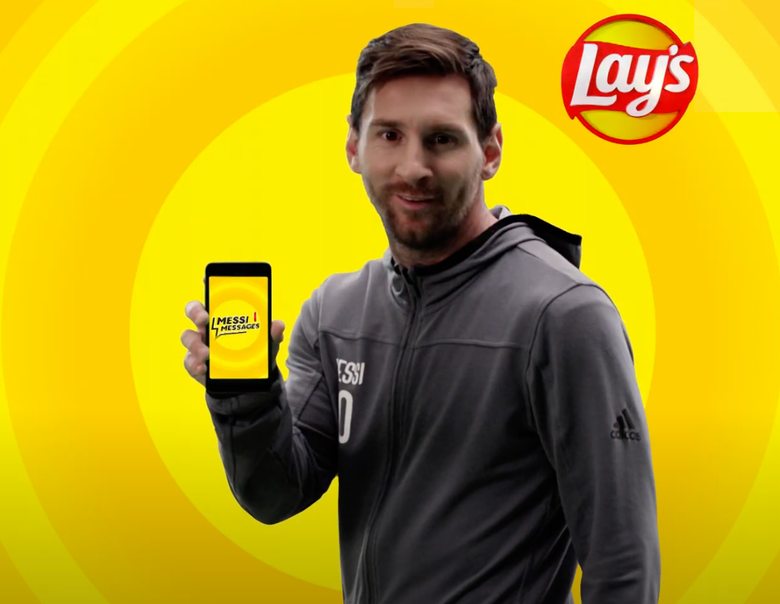

Published on November 28, 2023
Global marketing organizations have a sharp edge to hone using emerging AI technologies: Their purpose-built AI systems can mine a wealth of internal consumer data. But small and midsize business marketers can adopt their best practices in their own AI content creation experiments.
Here are case studies of AI advancements from global marketing organizations. View AI custom content at scale in the post Top 10 Generative AI Marketing Examples.
Brand managers have been adept at finding AI applications for content creation using Unilever’s custom OpenAI interface. A Thanksgiving promotion serves up menu suggestions with a bit of AI dressing. An AI-augmented search finds recipes using food on hand. Our test found many appealing alternatives to turkey sandwiches with Hellmann’s mayonnaise, but few ways to rescue leftover pumpkin from the back of the fridge.
Unilever was one of the original brand marketers; the Lever brothers named and packaged their laundry soap in 1884. Now, Unilever innovates in a wide range of AI applications. Several early uses make supply chains more sustainable, analyzing palm oil sourcing through previously neglected data such as plantation traffic, crowdsourced market reports and cloudy aerial views.
Several of Unilever’s GPT-3 solutions write marketing copy. One filters consumer emails to understand messages’ substance and tone, then drafts replies in Salesforce. Dubbed Alex, the sentiment analysis tool has cut agents’ time responding to emails by 90%. Another app, Homer, writes Amazon product descriptions with the proper brand voice and tone.
Few marketers will match Unilever with automated solutions, but they can build better ChatGPT prompts or train their own AI applications using the knowledge bases they have built for customers. Smaller organizations also can learn from the ways Unilever uses AI in sorting sales tasks such as tracking SKUs, identifying both poor-performing items to discontinue and sleepers to activate with marketing support.
PepsiCo has barred AI use for employee recruitment or one-to-one consumer targeting, working with Stanford to develop a framework for ethical use. Yet it applies AI widely in marketing and product research, forecasting consumer demand and inventory needs. In employee development, an AI bot suggests job openings and stretch assignments.
An in-house AI tool, named Ada for 19th-century mathematician Ada Lovelace, tests creative ideas to gauge audience reaction, speeding turnaround times and evaluating return on ad spend. Marketing gambits include personalized messages from soccer star Lionel Messi and speeding the development of healthy snacks by analyzing social posts.
ESG and sustainability loom large in investor relations. PepsiCo gives farmers AI tools to farmers to help raise yields and employs machine learning to refine operations to meet greenhouse gas emissions targets. A custom sustainability report assembles sections of its ESG summary report that drill down into agriculture, value chain and product offerings.
PepsiCo’s aggressive, yet standards-based use of AI is a lesson for marketers conducting their own content creation experiments. By setting guardrails and training teams in responsible practices, its brands get an early jump on trends and a better fix on how to make human connections.
Purpose Brand’s live workshop delivers a clear, practical path to ADA-compliant social content that reduces legal risk and expands reach. Register Now!
AI enhancements to the Salesforce platform are not limited to global clients such as Unilever. Its Einstein-branded automation tools give marketers a version of ChatGPT that does not start from scratch but is pre-loaded with typical outreach scenarios. Generative AI then tailors the narratives for specific customers.
The blank slate of a chatbot prompt frustrates many marketers. To get past generic answers, content strategists must enter extensive details on the business context of a message. Yet ChatGPT will retain user personas and other proprietary data in its chat history and could reuse them on competitors’ products. Entering confidential customer data poses an even greater risk. ChatGPT users can opt out of model training to prevent reuse, yet they still face a cumbersome workflow to use chatbots as helpers.
A paid Salesforce pilot program expands marketing access to AI without hiring a chatbot wrangler for the emerging, in-demand prompt engineer role. Email admins can build workflows to generate audience segments and descriptions from sales data; draft email subject lines and body copy; and review campaign performance. Once it is generally available, Einstein for Marketing will plug and play industry- or vendor-specific prompts to speed PR’s sluggish adoption of AI tools and create email content with more compelling narratives.
As soon as you submit the form, we will send to you a link to download our report.